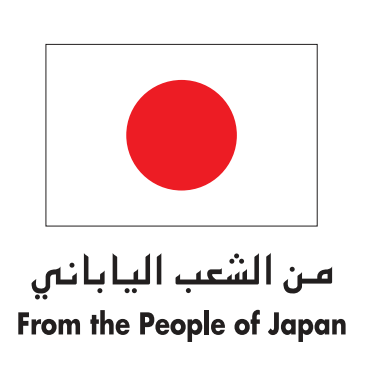
2. Objective
The "Grant Assistance for Grassroots Human Security Projects (GGP)" first aims to better ensure “human security” through implementing projects to empower people and communities and address basic human needs in such fields as health, basic education, water supply, poverty alleviation, and any other fields related to basic human needs.
The GGP also aims to foster peace-building from the bottom by assisting local organizations, including local councils, in establishing social and economic infrastructure at the community level. Such bottom-up approach is complementary to the efforts exerted by the central government towards establishing a viable Palestinian state.
3. Eligible Organizations
An organization must meet ALL of the following conditions to be eligible for GGP application:
- Officially recognized as a non-profit organization (non-governmental organization, village/local/municipal council, educational institution, medical institution, cooperatives, etc.)
- Neither individuals nor for-profit organizations are eligible.
- It is possible for a non-profit organization to work together with for-profit organizations (including Japanese companies) as far as the project aims to realize the public benefit at the grassroots level. Even in such case, however, it is still a non-profit organization who can become an applicant (with for-profit organizations as merely “partners”).
- Working for socio-economic development at the grassroots level
- Operating for more than two years in the field of the proposed project
- Having sound finances
- NOT awarded GGP funds in the past fiscal year
- In order to secure the availability of funds to a diversity of organizations, we do not award one organization in two consecutive fiscal years. For example, the organization that obtained GGP funds in the fiscal year of 2015 is not eligible until the fiscal year of 2017.
4. Target Areas of Projects
Based on the GGP general objective of meeting basic human needs and better ensuing human security at the grassroots level, a particular focus is put on the projects which will benefit people in need most directly and significantly. Especially, taking the Palestinian context into account, the following areas are prioritized:
- Healthcare, such as:
- Establishing or extending a healthcare center
- Providing a (regional) medical center with essential equipment
- Holding a workshop for mother and child care, etc.
- Basic Education, such as:
- Building new classrooms for the 1st- to 10th-grade students
- Improving basic school facilities such as renovation and adding sanitary units, etc.
- Water and Sanitation, such as:
- Extending or replacing main water pipes
- Building water cisterns for the common use of the community
- Building common septic tanks for wastewater treatment, etc.
- Electricity, such as:
- Extending or replacing main electric cables
- Setting up an electric generator for the common use of the community, etc.
- Support for Disadvantaged People, such as:
- Improving rehabilitation facilities for the disabled
- Giving women agricultural training such as beekeeping and food processing for poverty reduction
- Establishing a plant of cheap agricultural compost for poor farmers
- Extending main irrigation pipes or building agricultural cisterns for deprived farmers, etc.
5. Available Funds (Grant Amount/ Restrictions of Supportable Items)
The ceiling amount of the grant for each project is 10,000,000 Japanese yen in principle. Because the grant is given in US dollars in Palestine, the Japanese Government sets the maximum amount in US dollars every year at the beginning of the fiscal year (April), depending on the exchange rate between Japanese yen and US dollars. For the fiscal year of 2015, the exchange rate is 1 US Dollar to 110 YEN, so that the ceiling amount was 90,909 US Dollars.
6. Project Period:
The project must be completed within ONE YEAR after the grant contract is signed.
7. Application Deadline:
There is NO Deadline for applying; application forms can be submitted anytime throughout the year.
Nevertheless, screening for each year’s grant usually closes in September (the Japanese fiscal year begins in April).
|
West Bank Contact |
Gaza Strip Contact |
|
Ms. Diala Zaineddin-Dodin |
Ms. May Abu-Kmeil |
